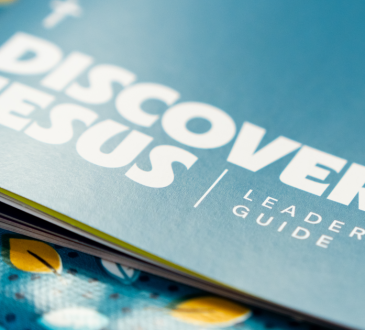Unlocking the Heart: How to Become Emotionally Available and Build Deeper Connections in Love and Life

Do you find yourself pulling back when conversations go too deep, when someone gets too close, or when you’re asked to be vulnerable? If so, you’re not alone. Emotional unavailability is far more common than you might think. At its core, being emotionally unavailable means experiencing difficulty forming deep connections, being open, and engaging in a true, unfiltered closeness with others. Whether you’ve recently ended a relationship, are working through mental health challenges, or have old wounds that never fully healed, emotional unavailability is something you can work on—and change.

Understanding Emotional Unavailability
Emotional unavailability can come from different places: a history of hurt, fear of intimacy, or simply the habit of self-protection. Sometimes, we create walls as a response to past pain, and while they may feel like they’re protecting us, they can often end up isolating us from the love we crave. Recognizing this can be tough, but it’s also empowering. Acknowledging that we might be closing ourselves off is the first step toward breaking down those walls.
Here’s a guide to opening yourself up to deeper connections, fostering emotional availability, and creating the kind of intimacy that thrives in healthy, wholesome relationships.
1. Recognize Your Fears and Be Honest About Them
Building true intimacy starts with honesty—with others but, most importantly, with yourself. Ask yourself, “What am I afraid of?” Are you afraid of rejection? Of feeling inadequate? Of being vulnerable and exposed? Sometimes, admitting to these fears can seem impossible because they go so deep, but confronting them openly and acknowledging the reasons behind them is the only way to stop them from holding you back.
For example, if you’re terrified of vulnerability because you’ve been hurt in the past, recognize that not every new person will hurt you. Every relationship is a unique experience; let go of the blanket assumption that all connections end in pain. Recognizing your fears lets you meet them head-on with compassion instead of letting them control your relationships from the shadows.

2. Practice Presence and Mindfulness
Being emotionally available is more than just talking; it’s about being truly present. When you’re with someone, whether a friend or a partner, give them your undivided attention. Put away your phone, clear your mind, and actively listen to them. Emotional availability thrives in the moments when we are fully present with another person.
Mindfulness can help here. Try breathing exercises before an important conversation, grounding techniques if you feel anxious, or even just gently reminding yourself to stay present. These small habits make it easier to fully engage in the conversation, and people will feel that you’re genuinely with them—not drifting elsewhere in your mind.
3. Embrace Vulnerability as Strength
For many, the idea of vulnerability seems like a form of weakness, but it’s actually a profound strength. Vulnerability means showing up as your true self without hiding behind perfection or pretense. It’s allowing someone to see the parts of you that you might usually keep hidden.
This is scary but freeing. Start small: share a fear, a dream, or even a struggle from your past. By taking those first steps toward vulnerability, you’ll start to see that it doesn’t make you weak—it makes you real, and real is where connection happens. People are drawn to authenticity; showing up as your true self will encourage your partner to do the same.
4. Build Emotional Intelligence Through Self-Reflection
Sometimes we avoid connection because we aren’t fully aware of our own emotions. Self-reflection is the doorway to understanding what we feel and why we feel it. Try journaling or meditative practices to get to know yourself better. Ask yourself questions like, “Why did I react that way?” or “What triggered this feeling in me?”
Understanding yourself is the key to becoming more emotionally available to others. When you know your own emotional landscape, it’s easier to let others in and give them the gift of knowing you—truly knowing you. This self-knowledge will help you create healthy boundaries, build empathy, and avoid lashing out when you feel vulnerable.

5. Communicate Openly and Honestly
Clear and honest communication is the bedrock of emotional availability. Let people know what you need and encourage them to do the same. If you’re feeling overwhelmed, say so. If you need reassurance, ask for it. Building a strong connection requires the courage to ask for what you need and offer what you have to give.
Remember, honesty doesn’t mean saying everything that crosses your mind, but it does mean expressing your true feelings, desires, and boundaries. By practicing this kind of openness, you create an atmosphere where emotional closeness can flourish without fear or hesitation.

6. Let Go of the Fear of Loss
Many of us keep a safe distance in relationships because we’re afraid of loss. We may think, “If I don’t get too attached, I won’t be hurt if things go wrong.” But this distance prevents us from experiencing true intimacy. Instead of fearing what could go wrong, try shifting your focus to what could go right.
Accept that while relationships do carry the risk of heartbreak, they also offer deep rewards. Love, friendship, companionship, and connection are worth the vulnerability. Learning to embrace love without trying to protect yourself from hypothetical loss will transform your relationships into more fulfilling experiences.
7. Forgive Yourself and Embrace Imperfection
No one is perfect in relationships; we all make mistakes, misunderstand, or misjudge. Give yourself permission to be human. Forgiving yourself and embracing imperfection is vital for emotional availability because it stops you from holding yourself to impossible standards.
The people who care for you aren’t looking for a flawless partner; they’re looking for someone real. By accepting your imperfections, you create space for growth. When you let go of self-judgment, you’ll also become less likely to judge others—and this, in turn, deepens the emotional bond in your relationships.

Moving Forward: Practicing Emotional Availability Every Day
Becoming more emotionally available is a practice, not a quick fix. Take small steps each day—express an honest feeling, listen without judgment, or share a vulnerable moment. Over time, these small actions will help you feel safer being open and emotionally available.
Healthy relationships require effort and courage, but the rewards are profound. Imagine a life where you feel truly connected to those you care about, where you can be your true self without fear or hesitation. That life is possible and waiting for you on the other side of vulnerability. Don’t be afraid to take those first steps; love deeply, share honestly, and give others the chance to know the real you.




